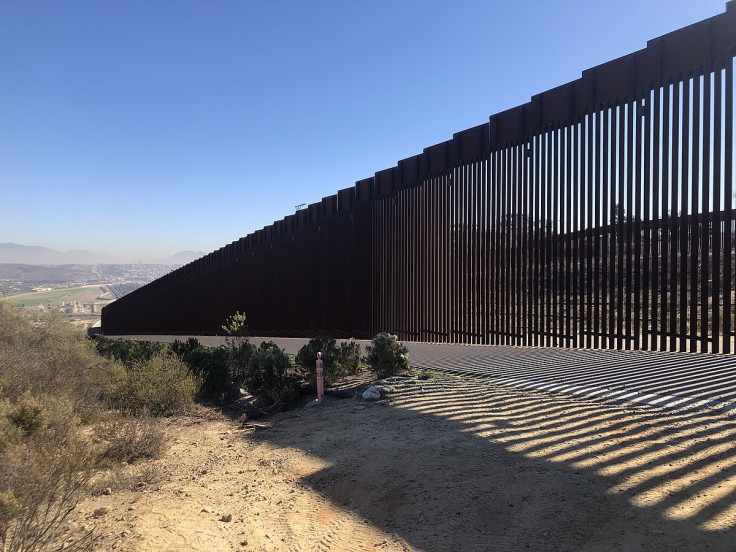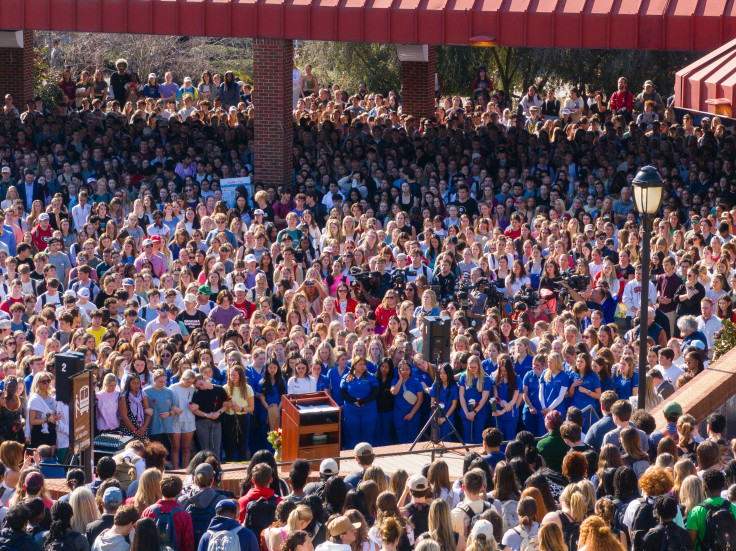
As the surging levels of immigration to the United States continue to dominate the national conversation, a majority of Americans said they support building a wall along the southern border, according to a new Monmouth University Poll.
It is the first time since the pollster started asking the question in 2015 that the positive answer clocks in above 50%. Concretely, it stood at 53%, compared to 46% who opposed it. Support for the measure has grown substantially compared to the Trump administration, a period during which it never stood higher than 44% and reached a low of 35%.
"Compared to public opinion nine years ago, support for building a border wall has increased by 13 points among Republicans (from 73% to 86%) and 11 points among independents (from 47% to 58%), but it has declined by 14 points among Democrats (from 31% to 17%)," the report's figures showed.
Moreover, and as other studies have been showing over the past weeks, there is an overall surge in the amount of people who consider illegal immigration a very serious or somewhat serious problem.
More than 8 in 10 Americans said it was very serious (61%) or somewhat serious (23%) problem. The figures varied significantly based on party affiliation, with 91% of Republicans saying it was a very serious problem, compared with 58% of independents and 41% of Democrats.
However, all groups of respondents posted a surge compared to 2015 and 2019. "This rise is most notable among Republicans, from 66% very serious in 2015 to 77% in 2019 and 91% in the current poll. Among independents, 58% say this is a very serious problem, up from just over 4 in 10 who said the same in both 2015 (42%) and 2019 (43%). A similar level of concern among Democrats now stands at 41%, after dipping from 33% in 2015 to 26% in 2019," the report explained.
Asked about where immigrants seeking political asylum should stay, over 60% said Mexico, compared to 35% who expressed support for them to stay in the U.S. while they wait. "Support for keeping asylum-seekers on the other side of the border as their claims are processed has increased among all partisan groups compared with 2019," Monmouth's results showed.
Consulted about whether they thing illegal immigrants are more likely to commit violent crimes, an issue that has taken centerstage after the alleged killing of a nursing student by a Venezuelan, 32% said so.

"The shift in opinion that illegal immigrants are more prone to violent crime has grown most dramatically among Republicans – from just 29% in 2015 to 45% in 2019 and 65% in 2024. By comparison, the changes in this view among other partisan groups has been much less significant – from 15% in 2015 to 26% in 2024 among independents and from 10% in 2015 to 12% now among Democrats," the report said.
An analysis by the Washington Post, however, shows that there is strong evidence to the contrary, and that "all immigrants are more law-abiding than native-born American citizens."
"Immigrant men today are 60 percent less liked to be incarcerated — a decline that occurred among immigrants from all regions — even though recent immigrants have characteristics associated with being snared by the criminal justice system, such as being younger, more likely not to be White, have lower incomes and are less educated," the outlet's analysis showed.
Talking about their economic impact, only 28% believe that illegal immigrants take jobs away from American citizens, with 62% saying they fill roles that Americans don't want. In fact, a new report by the Washington Post delved into how the influx of people has strengthened the job market in a way that couldn't have been done with native workers only, boosting the country's post-pandemic rebound.
The outlet cites an analysis by the Economic Policy Institute, which shows that half of the labor market's recent growth can be explained by foreign-born workers over the past year. And before that, the study said, it helped close the labor force gap created by the pandemic.
The Congressional Budget Office provided more figures, showing that the labor force grew by 5.2 million people last year, and net immigration could explain most of that. It also projects that the economy will grow by an additional $7 trillion over the next decade because of this.
© 2025 Latin Times. All rights reserved. Do not reproduce without permission.






